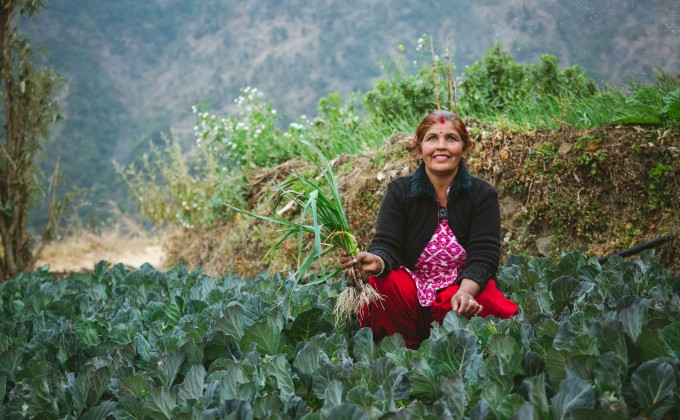
If there’s one concern we all share today, it’s the effects of climate change, natural disasters and epidemics around the world.
Recently, powerful typhoons tore through the Philippines. Haiti was once again struck by an earthquake, followed by Tropical Storm Grace. Meanwhile, forest fi res raged through Canada, the United States, Australia and Europe. These are just a few examples of the disasters humanity is contending with.
CECI has deep roots in many of the most vulnerable countries in the world. With our local partners, we are well placed to take action when a disaster strikes. But we also have a long-term presence, in order to help people get back on their feet. And in communities that are already impoverished, this can take time. It requires resilience and will power.
Today, I’m calling on your empathy and your own desire to build stronger societies. Contribute by making a donation to our annual resilience campaign!
Your donation serves as a foundation. We will use it to help local populations get back on their feet and adapt their farming techniques and crops so that they can be better prepared to deal with climate change, natural disasters and pandemics. We will also use your donation to help local economies in a ected communities recover, particularly by supporting women entrepreneurs. Because we know that in times of crisis, agricultural workers and small entrepreneurs are often the most vulnerable.
The communities that you support fully deserve it, given their constant efforts to get back in their feet, rebuild, and return to their fi elds or small businesses, even after having gone through terrible trauma. I’m deeply grateful to you for supporting CECI.
1. Haïti. Yam and cacao producers in southwest Haiti are improving their yields and the economic value of their products.
Haiti has been struck by multiple disasters—and is also experiencing political turmoil. Despite this, the strategies implemented by CECI and its local partners are bearing fruit: an agroforestry production system for cacao and yams is providing economic development in the region and improving resilience. The initiative draws from local knowledge as well as from the most recent climate change data and technological innovations in production. Strategies prioritizing access to markets are overseen by partner cooperatives, supported by CECI.
2. Nepal. Young women from Pokhara are developing organic agriculture and improving their means of subsistence.
Many Nepalese lost their jobs during the COVID-19 pandemic. With the assistance of workers on the ground, CECI recommended that they redirect their economic activity to promising sectors such as
vermicomposting to improve agricultural yields and growing organic mushrooms, like oyster mushrooms and shiitakes, which have high market value. Since they can be easily grown with little land, they provide signifi cant income for impoverished families and are an excellent source of nutrients.
3. Philippines. The victims of Typhoon Haiyan are developing more climate-change resistant agriculture for sustainable economic growth.
In 2013, the Philippines was hit by a typhoon, followed by a second one 13 months later. CECI fi rst intervened to respond to the emergency. Then, with its local partner, CONCERN Inc., it implemented training to build the capacity of local farmers. The objective? To diversify production by adding eggplant, cucumber and other vegetables to traditional coconut production; introduce crops such as dwarf palm trees which are more resistant to storms and promote the adoption of new farming techniques. There was also a training component for the jobless, and business start-up support.